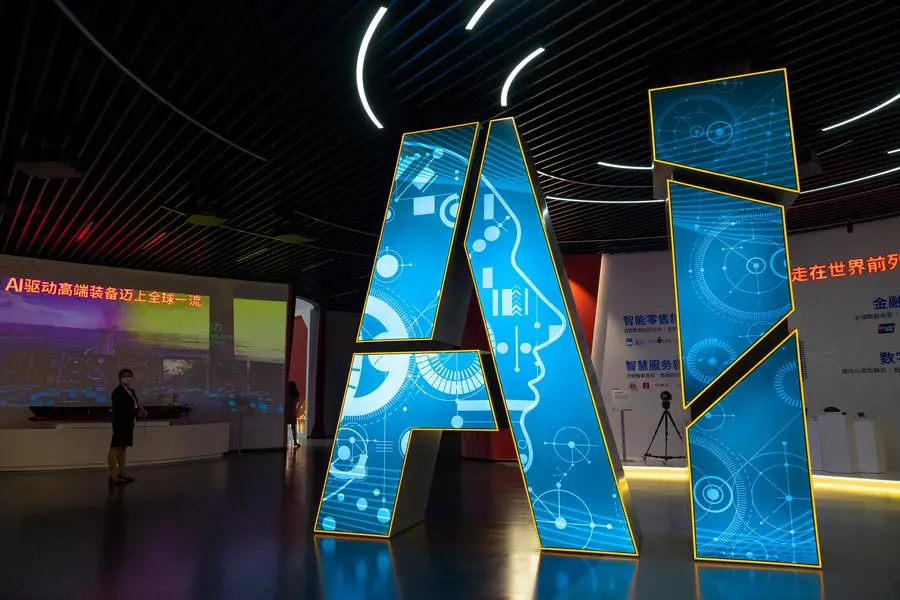PHOTO
The GAIN Summit 2024 (September 10-12) in Riyadh gathered a diverse group of international leaders, experts, and innovators in the artificial intelligence (AI) industry, facilitating discussions and collaborations on the future of artificial intelligence.
At the event, Boston Consulting Group, an insight partner for the event, unveiled its latest white paper on Artificial General Intelligence (AGI) – the next frontier in AI revolution and its implications.
The new report, ‘Artificial General Intelligence: Demystifying AI’s Next Frontier’, explores AGI's key concepts and future potential, and examines how it differs from current AI technologies.
The report provides an overview of AGI’s applications across industries, its technological and ethical challenges in development, and the governance frameworks necessary for its responsible implementation.
It also highlights the need for stakeholder collaboration to guide AGI’s progress and ensure its benefits are realised safely and equitably.
Dr Lars Littig, Managing Director & Partner at BCG and Emesa Leader of BCG's Center for Digital Government unveiled the report's key findings during the Global AI Summit.
He said: "AGI represents the next critical leap in artificial intelligence, with the potential to reshape our world fundamentally.
“While generative AI is an entry point, AGI unveils a significant breakthrough where AI will reach or surpass human-level intelligence and cognitive capabilities across a wide range of tasks.
“We must guide this technological advancement with ethical frameworks and the right governance structures as we progress toward this future.
“Today's decisions are crucial to actively shaping the pathway to AGI. The next few years will be critical for developing and implementing concrete action plans for AI regulations that balance fostering innovation and ensuring responsible and beneficial AI development."
AGI represents a significant leap from today's Artificial Narrow Intelligence (ANI), limited to performing specific tasks. It aims to achieve human-like cognitive abilities, allowing it to learn and perform any intellectual task that a human can, while Artificial Superintelligence (ASI) would surpass human intellect.
Currently, we remain in the ANI phase, where AI is optimised for particular, narrow functions. Achieving AGI, however, is a complex and multifaceted challenge.
As outlined in BCG’s whitepaper, the primary barriers include the massive computational resources required and our limited understanding of human cognition and intelligence, which AGI aims to replicate.
Additionally, safety and ethical concerns, particularly around ensuring AGI’s goals align with human values, loom large in ongoing research.
In the AGI development space, companies such as OpenAI, DeepMind, and numerous academic institutions are at the forefront, working on advancements in neural networks, machine learning, and brain-inspired architectures.
These organisations recognise the transformative potential of AGI and are receiving substantial support from private investors and governments alike.
The competition and cooperation among these entities signify the importance of AGI not just in the tech world but across sectors, with implications for everything from healthcare to economics.
Eight Focus Areas Shaping AI's Future
The Global AI Summit's programme revolved around eight key focus areas that encompass the cutting edge of AI innovation and its far-reaching implications.
These areas include AI Nation, addressing government roles in AI; Generative Times, exploring AI's path to AGI; Human – Is That Still a Thing?, examining human-AI interaction; Ethics that Work, investigating AI governance; Business Leaders, On Your Marks, guiding AI strategy; Silicon Matters, evaluating AI infrastructure; Data-Application Nexus, exploring practical AI uses; and AI in the City, considering AI's urban impact.
Collectively, these focus areas represent the pivotal conversations and transformative forces shaping the field of artificial intelligence today, fostering discussions on everything from governance and ethics to practical applications and societal effects.
Dr Akram Awad, Partner at BCG, said: “We must remember that AI is not magic — it’s math and science that will touch every aspect of our lives. These focus areas highlight the critical need for active engagement across sectors.
“We can’t be passive observers in this AI revolution; we must actively responsibly shape its trajectory.
“As we highlight in our AGI whitepaper, it’s crucial to keep a close watch on advancements like AGI to guide responsible development while recognising the immediate potential of existing technologies to tackle the world’s most pressing challenges.
“Balancing future innovation with current applications is key to ensuring AI’s benefits are realized across society.”
Copyright 2024 Al Hilal Publishing and Marketing Group Provided by SyndiGate Media Inc. (Syndigate.info).





















